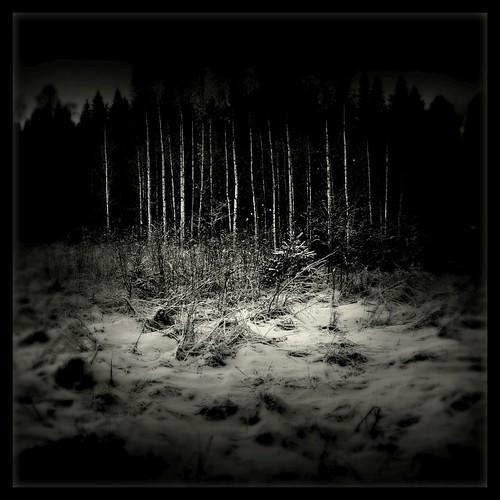
- dark forest
When I was cleaning my room, I bumped into pieces of yellow papers where I wrote some of my works that I must have forgotten ever existed.
*****************************************************************************************************
Freezing Hell
It was snowing, the night was quiet, the moon was showing her spotless features. It was December in nobody-knows-where, nobody-cares-where land of the hopeless and disembodied spirits, where they shivered in cold, moan in pain, squall for life; died with frostbite in their souls eating them slowly---piercing them from their filthy and unforgivable sins. It was hell only without the flames of eternal fire.
She sat there watching the others who are like her; hungry, thirsty, and suffering for the love and the life that were taken away by her enemies who devoured her happiness; who drowned her in the cold and freezing black waters of nobody-knows where foul oceans of lie and lust. Unfortunately, a sudden immerse cognition came to her---that her enemy is no other than the young lass she sees on her mirror. She's a hazard to herself, she always thought.
She sobbed.
The night was cold, stale and frigid. The foul smell of the dead like burned ashes of bones, tissues and organs, the aroma like fragrance of the morning for those who have been there all there lives. The irony is that they never wanted the place to their home ground, but never can they change what they believe to be destined-----to suffer and die. to endure the pain is the only goal left for existence. Hunger and thirst were no longer enemies, because both were no longer a novelty to them. Apathy was no longer a crime. It was life.
The darkness that enveloped the sky was their only food. The only safe place to be with was to gather around with the rest of the others who are like them living in the shadows of shame, despair and helplessness but she wasn't. She chose to be distant from the others as a form of atonement for all her lies. It was the life they've created for themselves. A life in freezing hell.
Everytime she picked up that razor, she felt life beforehand. And everytime she penetrated it on her slender pale flesh, she felt alive. The blood that dripped from her flesh to the filthy ground reminds her of the dammed life that she's living. Everytime she took in the pills, she began breathing and smelling the perfume-like ocean, touching the thorns, and grasping tightly the thorny wires. Blood spilled again to the same ground where she fell on her knees.
The guilt feelings that she hid inside her are consuming her, eating her soul, gradually inflicting self hate. The more she suffered the pain, the more the anger intensified. It's cut too deep----too deep that the wound would never heal until the day of reckoning, until the day she will be ripped apart into teensy-weensy pieces; burned into frozen ashes until all particles of her will be dispersed in the world that she hated.
(end)












